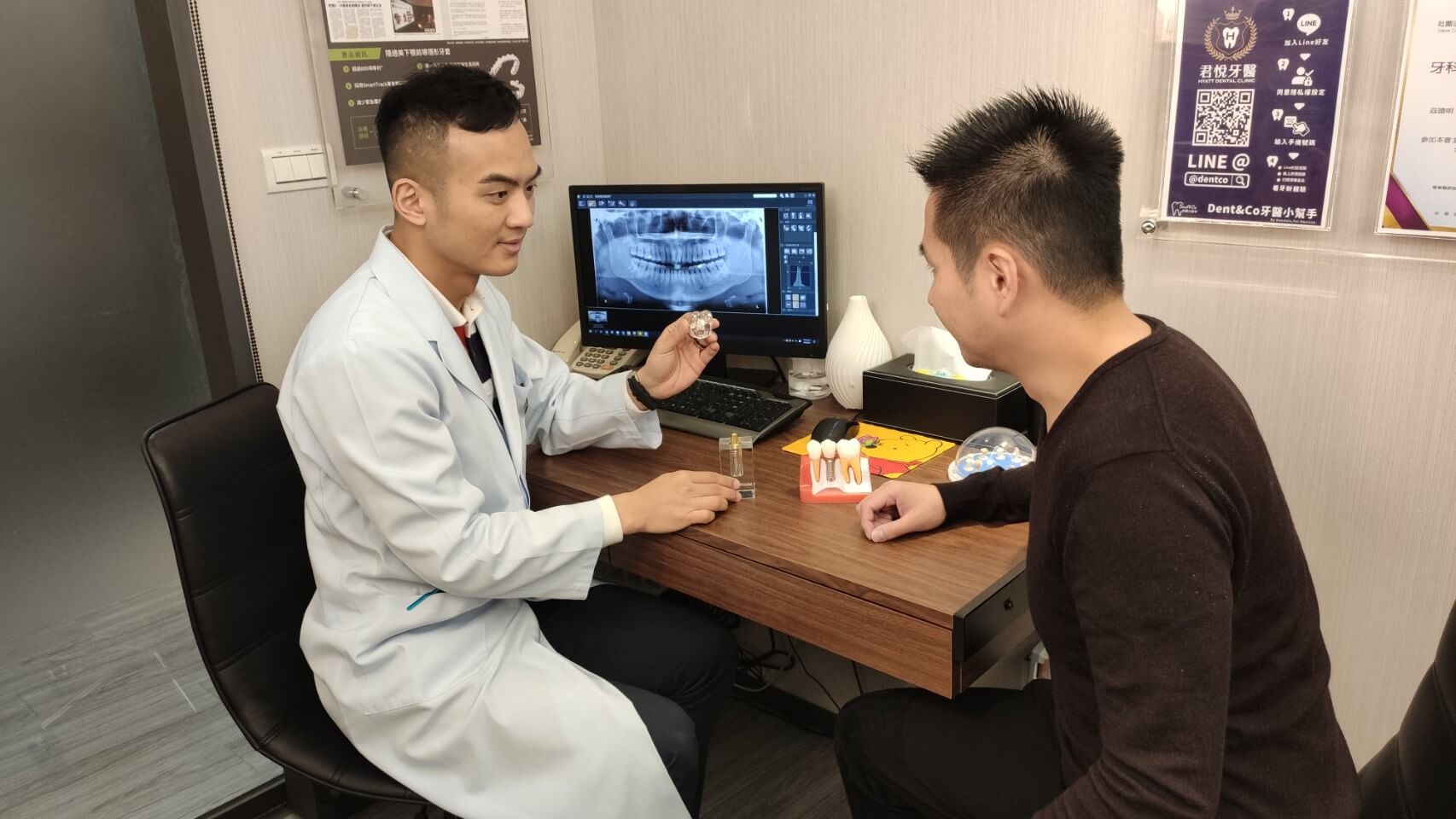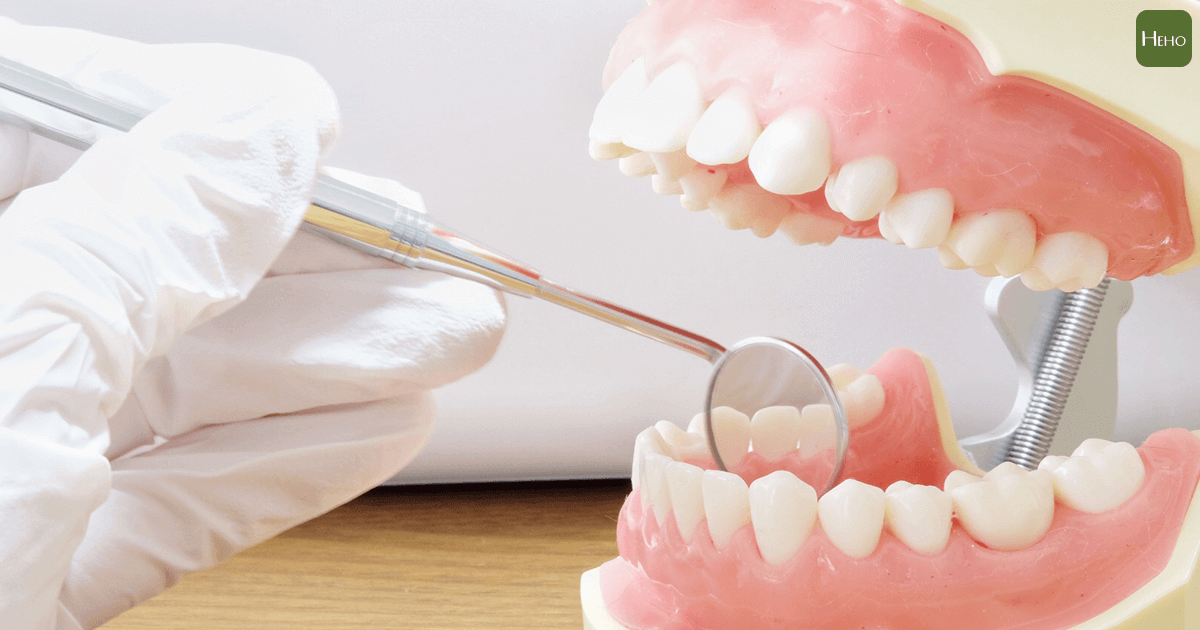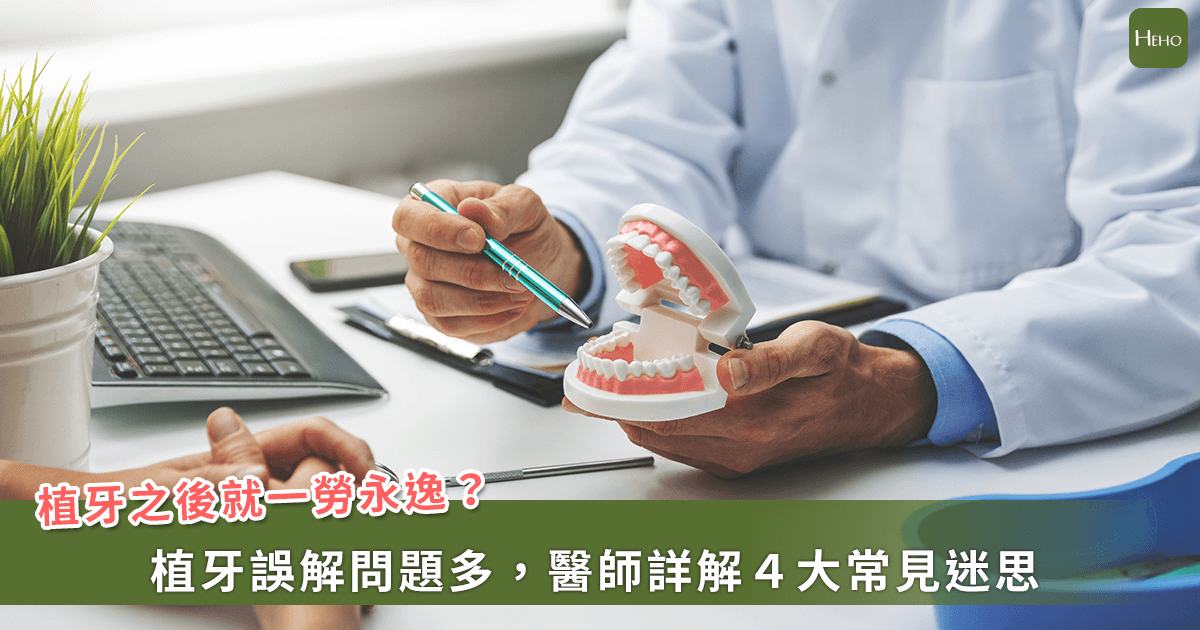The high cost of dental implants leads many patients to hope for a permanent solution, but not all implant results turn out as expected. Common dental disputes often involve implant failure, nerve damage, and anesthesia risks. Chen Ji-Long, Executive Director of the Kaohsiung City Dental Association, points out that dental implants are like a car; they not only need to be properly manufactured but also require good oral habits and regular maintenance to extend their lifespan. You should have a detailed discussion with your doctor before getting dental implants. (Photo: Heho Health)
You should have a detailed discussion with your doctor before getting dental implants. (Photo: Heho Health)
The first myth is that "implants never fail." The lifespan of an implant is closely tied to usage habits and overall health. Poor cleaning or chewing on hard objects can shorten the implant’s lifespan. Health issues like periodontal disease and osteoporosis can also affect the supporting environment of the implant, leading to failure. The second myth is that "repairs are free." Chen explains that the warranty on implants typically covers only the artificial root, while the crown is a consumable item that usually requires out-of-pocket repair costs. Patients should fully understand the warranty coverage before treatment. The lifespan of dental implants is closely related to your usage habits and health condition. (Photo: Heho Health)
The lifespan of dental implants is closely related to your usage habits and health condition. (Photo: Heho Health)
The third myth is that "switching doctors is easy." Since different dentists use different implant systems, changing doctors may require restarting the treatment. Chen advises patients to fully communicate with their original dentist and keep a record of the implant system brand to facilitate future repairs. The fourth myth is "only see the dentist if you're uncomfortable." Regular check-ups can extend the life of implants, and patients should maintain good oral hygiene and schedule regular follow-up visits. Having a consistent doctor helps build trust and increases satisfaction with the implant's longevity and performance.







